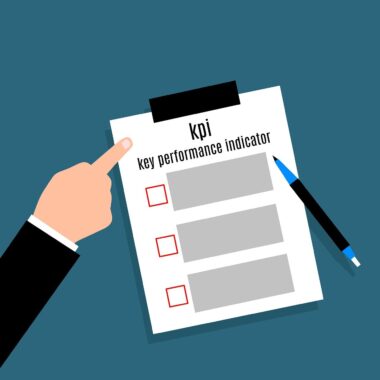The Role of AI in Mobile Marketing Analytics
The integration of artificial intelligence (AI) into mobile marketing analytics has transformed the landscape for businesses aiming to leverage mobile channels. Marketers can now harness AI to analyze vast datasets from various sources including social media, app interactions, and user behavior. With real-time analytics, businesses can gain deeper insights into consumer preferences and trends. AI algorithms, such as machine learning and predictive analytics, help identify patterns that were previously challenging to uncover. Moreover, by employing AI-driven segmentation, marketers can target specific user groups more effectively. Personalization is a significant advantage as customers receive tailored experiences that resonate with their needs. Furthermore, chatbots powered by AI enhance customer engagement, providing instant responses to queries and offering personalized recommendations based on user behavior. This automation not only improves user satisfaction but also increases the likelihood of conversions. As mobile usage continues to rise, embracing AI technologies in marketing strategies is essential. Companies that invest in AI capabilities are more likely to outperform competitors in their market segments. In this fast-paced environment, leveraging these tools can lead to greater customer retention and overall success.
AI’s ability to process and analyze data efficiently makes it indispensable in executing advanced mobile marketing strategies. Organizations are now able to leverage predictive analytics to anticipate customer needs and preferences better than ever before. By analyzing past purchasing behaviors and engagement patterns, AI tools can forecast future actions. This foresight allows marketers to curate content, offers, and advertisements that resonate with consumers on a personal level. Additionally, AI-enhanced tools offer dynamic pricing strategies, adjusting costs based on demand, competitor pricing, and inventory. Businesses are achieving improved customer satisfaction and engagement rates as a result of these tailored strategies. Moreover, AI algorithms efficiently handle A/B testing of marketing campaigns, determining which variations yield the best results. This automated testing saves time and generates reliable data faster, allowing for informed decision-making. In mobile marketing, time is of the essence, and AI tools help brands stay ahead of rapidly changing consumer preferences. Ultimately, the integration of AI into mobile marketing analytics is not just an option but a necessity for businesses striving for success in today’s hyper-connected world.
Enhancing User Experience through AI
One of the most significant impacts of AI in mobile marketing analytics is its role in enhancing user experience. Brands can use AI-driven insights to create seamless interactions across all mobile touchpoints. Through analyzing user journeys and interactions, marketers can identify potential friction points that hinder user engagement. By leveraging AI to refine these processes, brands are capable of improving overall app performance and user retention rates. Personalization remains a key factor contributing to user satisfaction. By utilizing machine learning algorithms, brands can predict user preferences, delivering relevant content that encourages interaction. Push notifications, tailored recommendations, and personalized marketing messages serve to engage users effectively. Furthermore, AI-powered analytics help brands track engagement metrics accurately and adjust their strategies accordingly. Through continuous optimization fueled by real-time feedback, brands can foster stronger relationships with their audience. Customer loyalty is more achievable as brands deliver what users desire, when they want it. In an age where competition is fierce, prioritizing user experience through AI is vital for success in mobile marketing.
In addition to enhancing user experience, the implementation of AI in mobile marketing analytics encourages deeper audience insights. Understanding the consumer journey is essential for crafting effective marketing strategies. AI tools collect and analyze data from various platforms, generating comprehensive profiles of target audiences. Marketers can assess demographic data, interests, and behaviors to deliver more relevant content and advertising. Anonymized data also allows brands to glean sector-wide trends without infringing on privacy. The result is a robust framework that supports better campaign planning and execution. AI-driven insights help anticipate user behavior, optimizing marketing efforts for maximum impact. Moreover, audience segmentation becomes more sophisticated as AI algorithms can categorize users into distinct groups with specific characteristics. This ensures that marketing messages resonate with the right audience. Implementing these strategies allows brands to allocate resources effectively and create tailored promotional campaigns. The synergy of AI and mobile marketing analytics fosters a data-driven approach that enhances brand performance. As the digital landscape evolves, embracing these advanced analytic capabilities is crucial in sustaining competitive advantage in the marketplace.
The Future of Mobile Marketing with AI
Looking ahead, the future of mobile marketing analytics is tightly intertwined with advancements in artificial intelligence. The growth of 5G technology and increased smartphone adoption are driving the demand for more sophisticated mobile marketing solutions. AI will play an instrumental role in helping brands adapt to these changes, providing real-time insights that shape marketing strategies. Enhanced capabilities for real-time data analysis mean that brands must stay agile—and AI empowers them to achieve this. Moreover, the increasing use of augmented reality (AR) in mobile marketing presents unique opportunities for creativity and engagement. AI-powered tools can analyze user interactions in AR environments, refining user experiences further. As ethical considerations around data privacy continue to evolve, brands must remain transparent in their data usage. AI can support these efforts by ensuring compliance with regulations and fostering consumer trust. As marketers build strategies around emerging technologies, mobile marketing analytics will become more intricate and predictive. This approach will not only benefit brands but also enrich the user experience, fostering engagement, satisfaction, and loyalty.
Moreover, collaboration between AI technology providers and marketers will be vital as the mobile marketing landscape develops. Brands need to invest in partnerships that facilitate access to innovative AI tools and data analytics platforms. With technology evolving rapidly, staying informed about the latest AI advancements will enable marketers to remain competitive. Training teams to harness AI capabilities effectively is equally crucial. Upskilling staff ensures a better understanding of how to utilize data-driven insights to inform strategic decisions. Marketers who are proficient in AI tools can drive campaigns that yield higher return on investment (ROI). Furthermore, fostering a culture of experimentation can benefit companies seeking to optimize their mobile marketing efforts. Continuous learning from AI analytics allows brands to iterate and innovate, devising campaigns that resonate with their evolving audience. A strong agile mindset, supported by AI capabilities, positions brands to adapt to changing market conditions. The amalgamation of AI and mobile marketing analytics fosters a future where efficiency fuels actionable insights, ultimately enhancing consumer engagement, satisfaction, and brand loyalty.
Conclusion: AI as a Game-Changer in Mobile Marketing
In conclusion, the role of AI in mobile marketing analytics is a game-changer for businesses navigating a competitive landscape. AI’s ability to process vast amounts of data empowers brands to make informed decisions that enhance engagement and optimize marketing strategies. The importance of personalization cannot be understated, as it drives customer satisfaction and loyalty. Implementing AI tools enables marketers to analyze consumer data effectively, resulting in targeted campaigns that speak directly to the audience’s needs. Additionally, the integration of AI fosters innovation by enabling brands to experiment with new tactics and technologies, allowing companies to remain agile in a fast-paced environment. As the field of AI evolves, marketers must invest in staying knowledgeable about emerging trends and tools. This commitment will ensure brands maximize their potential in mobile marketing and analytics. Overall, the synergy between AI and mobile marketing analytics represents a significant step toward future-proofing brands against upcoming challenges. With a strategic approach to AI implementation, companies can elevate their marketing capabilities and drive sustained growth in an increasingly digital world.
Embracing these advancements is no longer optional; it is essential for gaining a competitive edge. Companies that harness AI for mobile marketing analytics will be equipped to navigate the complexities of consumer behavior. The ability to adapt to changes in user preferences and market dynamics will set forward-thinking businesses apart from their peers. The convergence of human creativity and AI technology creates avenues for innovation, unlocking potential for deeper connections with consumers. As brands invest more in AI capabilities, the overall efficiency of marketing strategies will increase. The generative power of AI accelerates analysis and forecasting, resulting in campaigns that are more effective and engaging. The changing environment necessitates ongoing adaptation and learning. By leveraging AI’s capabilities in mobile marketing analytics, marketers can revolutionize their approach to connecting with audiences. Investing time and resources into understanding this Toolset is crucial for brands aiming for long-term success. The digital landscape is shifting rapidly, and brands must remain proactive to thrive. Ultimately, it’s not just about utilizing AI but about crafting a future where mobile marketing, powered by AI, consistently resonates with consumers.





